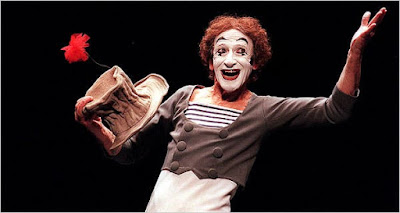In his 1964 book Games People Play, psychologist and author Eric Berne introduced a theory examining human interactions. Based on the idea that we are all social beings, and that we relate to people on multiple levels that change depending on who we are interacting with and the circumstances we are in.
He identified three levels, calling them Parent, Adult, and Child – and depending on our role, and the role of the other person . . . Berne claimed that individuals ended up playing different subconscious roles in what he called subconscious games.
Despite his influence on modern psychology and his clinical expertise in relationships, Berne himself was married and divorced three times over the course of almost 30 years.
Nonetheless, it can be helpful to evaluate our own relationships and interactions to see if we might be playing games in certain circumstances and work towards being more sincere and straightforward in how we deal with each other and with ourselves.
Today is the 21st Sunday in Ordinary Time.In today’s readings, we see God’s relationship with His holy people played out in various ways.
In the Old Testament reading from the end of the Book of Judges, Joshua gives the Twelve Tribes of Israel a bit of an ultimatum to make a definitive choice to serve the LORD; ending his appeal with his own firm choice, stating:
As for me and my household, we will serve the LORD.
In the Gospel, those who heard Jesus speaking on the Bread of Life – what we have been reading over the past several weeks – make the observation that:
This . . . is hard; who can accept it?
Indeed, Jesus is calling for a deep spiritual commitment ... a true conversion of heart, mind, and soul that – despite its difficulty – “gives life” . . . and not just life in this world, but rather “eternal life.”
Jesus offers this new life in God . . . this eternal life . . . to all who believe. Yet despite the promise, we are also told that “many of his disciples . . . no longer accompanied him.”
St. Paul further develops this them in his letter to the Ephesians – comparing the relationship of husband and wife to Christ’s relationship with the Church . . . that is, with us. Yet in the end, he still says:
This [too] is a great mystery.
For us to truly live out the Christian life requires a solid commitment from us which very often requires difficult choices between what the world or the culture may offer us on one hand; and what the law of Christ and the Church demand of us on the other. And worldly choices may appear to offer immediate gratification – something appealing which is in fact passing and ephemeral – Jesus Christ offers us life . . . and not just life here . . . Jesus offers us eternal life.
No matter where we may find ourselves, we are called to embrace our daily situations with Christian dignity . . . abiding in Faith, Hope, and Love. While our goal is is the satisfaction of life in abundance with Christ in God’s Heavenly Kingdom – this always requires from us a personal sacrifice if we are to truly receive and engage the sanctifying gifts of grace, mercy, and love that are offered to us through our relationship with God Almighty.
As we approach this altar to receive the Sacred Body and Blood, Soul and Divinity of Jesus Christ . . . let us pray that through the mystery of the Eucharist we receive today . . . we might grow deeper in our relationship with God – Father, Son, and Holy Spirit. May the sanctifying grace of all the Sacraments we have received strengthen our commitment to God and Christ; and direct us always to follow Jesus Christ ... He who is the Way, the Truth, and the Life.


















